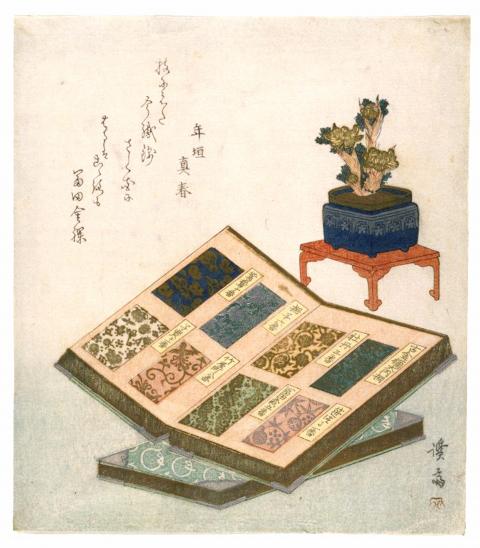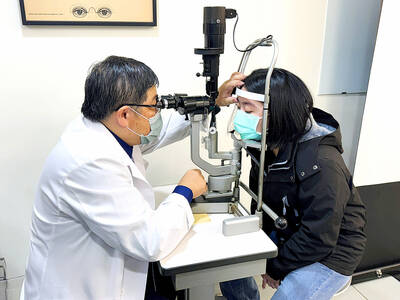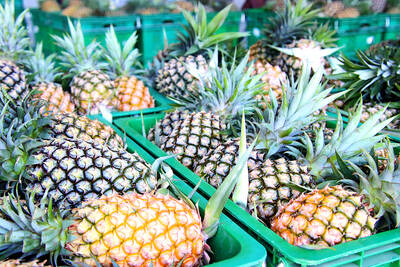Chinese practice
錦上添花
(jin3 shang4 tian1 hua1)

Photo: Wikimedia Commons
圖片:維基共享資源
adding flowers to brocade
蛋糕是早在新石器時代即已出現的甜點。糖霜(icing)的英文亦可寫作frosting,是覆蓋在蛋糕表面的一層糖,讓蛋糕更增甜味。換句話說,糖霜不是必需品,但有它更好,會讓味覺經驗更加美好。
糖霜早在數百年前便已開始使用。目前所知糖霜配方第一次出版是在一七六九年伊麗莎白‧拉菲德所著的《有經驗的英國女管家》一書。但是,在一九五○年代才開始把「icing on the cake」用來表示在已有的事物上再加上討喜的東西、表示額外的好處,或指無足輕重的改善。
「Icing on the cake」常用來表達的意思有好有壞:它可用作正面的形容,表示好上加好,在已經很好的事物上再加上美好的事物;或是負面的、通常有挖苦的意思,表示屋漏偏逢連夜雨,讓已經很不幸的情況更加惡化。
中文裡有個類似的成語「錦上添花」,其字面上的意義是在錦緞上繡入更多花。錦緞是以五顏六色花卉圖案裝飾的織品,在此之上添入更多花,引申為讓事物更加動人或美好之意。此句早在宋朝時已出現,書法家黃庭堅曾在其〈了了菴頌〉一詩中曾用過。「錦上添花」多半是用作正面的形容,很少是用作諷刺。
(台北時報編譯林俐凱譯)
隔壁小陳國考考了狀元又升了官,真是錦上添花、喜上加喜。
(Mr Chen next door just got first place in the civil service examinations.
The icing on cake is that he has also been promoted.)
我們已經夠幸運了,並不需要錦上添花。應該把獎品送給窮人,因為雪中送炭才是真正可貴的。
(We’re already very fortunate. We don’t want for anything. We should give the prizes to the poor, that is what is important.)
英文練習
the icing on the cake
A cake is a form of sweet dessert. It has a history stretching all the way back to the Neolithic. Icing, also known as frosting, is the sugary confection coating a cake to add an extra bit of sweet indulgence. In other words, it is not necessary, but certainly nice to have, and in fact enhances the experience.
Icing started to be used centuries ago. The first known published recipe for icing, however, appeared in Elizabeth Raffeld’s 1769 book “The Experienced English Housekeeper.” The first known application of the term “icing on the cake” — meaning a pleasant addition to something you already have, an additional benefit, or a largely unessential enhancement — dates back to the 1950s.
In common usage, the phrase cuts both ways: it could be used in a positive sense, to suggest something pleasant enhancing an already good thing, or in a negative sense, often said sarcastically, to mean a negative experience exacerbating an already unfortunate situation.
In Chinese, there is a similar idiom, 「錦上添花」, literally “to add flowers to brocade.” Brocade is a woven fabric decorated with colorful floral motifs. To add flowers to this already decorous pattern makes an already beautiful object all the more resplendent. It was used at least as early as the Song dynasty, when the calligrapher Huang Tingjian used it in his poem liao liao an song. The idiom 「錦上添花」 is generally used in a positive way, and very rarely in a sarcastic manner.
(Paul Cooper, Taipei Times)
I’ve just split up with my girlfriend. The icing on the cake is that she took the dog, too.
( 我跟女朋友剛分手,更糟的是,她也把狗帶走了。)
We’re going for a two week trip to Bali Island, and the icing on the cake is that we’ve been bumped up to first class.
(我們要到峇里島去玩兩週,錦上添花的是,我們還被升級到頭等艙。)

A: Recently, I’ve been seeing mosquitoes flying around in front of my eyes. The doctor said it’s the “flying-mosquito disease.” B: Flying mosquitoes? What a strange name. A: They’re actually called “floaters” in English, meaning floating debris. When fibrous substances in the vitreous body inside the eyeballs increase, floaters can appear in the visual field. B: Oh my goodness. Can you get rid of them? A: According to ophthalmologist Horng Chi-ting’s research, taking the enzymes of certain fruits is likely to help reduce floaters. A: 我最近一直覺得眼前有蚊子飛來飛去,結果醫生說是「飛蚊症」。 B: 飛蚊症?好奇怪的病名。 A: 英文名稱叫「floaters」, 也就是漂浮物的意思。 因為眼球的玻璃體中纖維化物質增多,導致視野出現漂浮物。 B: 天啊!要怎麼把蚊子趕走? A:

Bilingual Story is a fictionalized account. 雙語故事部分內容純屬虛構。 I stand by the Miluo River as dusk falls. The court betrayal is too much. I served Chu with loyalty. I forged alliances and fought corruption. But the whispers of jealous courtiers, the murmurs of treason, spoke louder. The king cast me out. The water looks calm. It promises peace. I step in. The river is cold against my legs. I hear shouts behind me — fishermen calling my name. I keep walking. The calls grow louder, but I do not turn around. The water rises to my chest. It pulls at me. I

In Taiwan, people can use a platform to rent a power washer for a weekend or share unused garage space for someone’s storage needs. These are examples of the sharing economy, a consumption model that has gained widespread adoption worldwide. This approach allows people to rent or share assets like cars, homes or even services, typically through online platforms. This innovative model poses a simple yet powerful question: why purchase infrequently used items when sharing is more practical? By making useful but idle resources accessible, the sharing economy turns them into sustainable opportunities. Internationally, platforms like Airbnb and Uber have popularized

A: What types of fruit enzymes should we take to help reduce eye floaters? B: According to a study published in the “Applied Sciences” journal by Taiwanese ophthalmologist Horng Chi-ting, pineapple, papaya and fig supplements can improve symptoms. A: Pineapples are in season now, so you should munch on more of those to get rid of floaters. B: Not quite. Enzymes can be damaged by our stomach acid if we eat the fruit directly. The doctor says taking fruit enzyme capsules is better for absorption. A: Most importantly, we should reduce our use of personal electronics to prevent floaters from